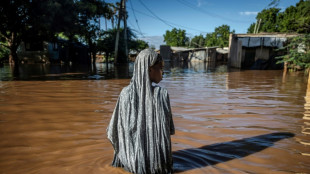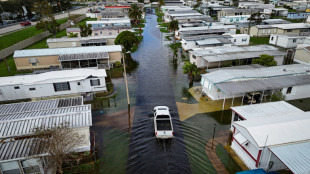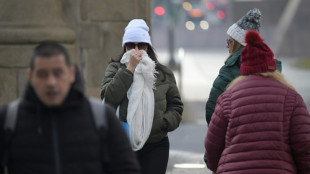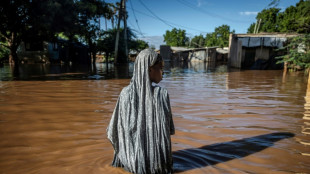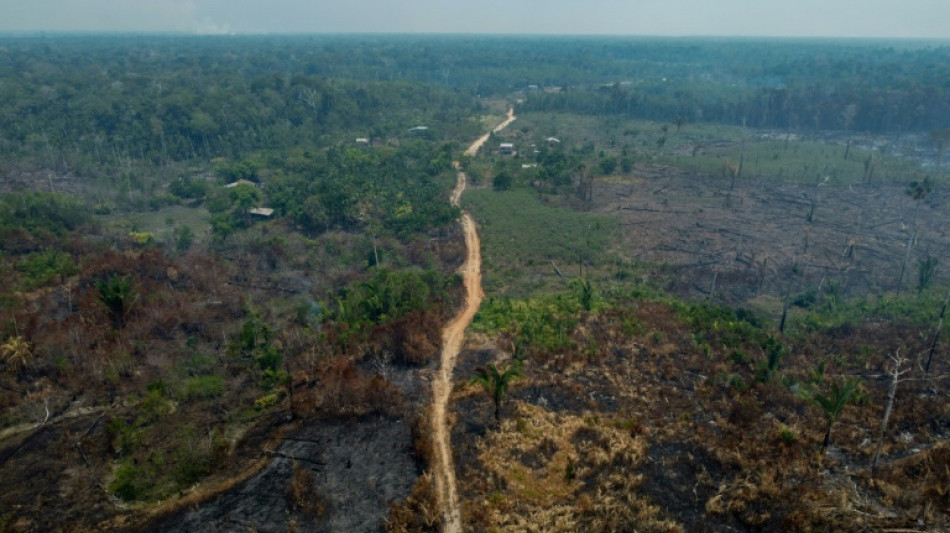
| BCC | -1.31% | 115.88 | $ | |
| BCE | -2.92% | 22.96 | $ | |
| SCS | -3.01% | 10.97 | $ | |
| RBGPF | -4.54% | 59.31 | $ | |
| RIO | 0.36% | 58.84 | $ | |
| CMSC | -0.79% | 22.92 | $ | |
| CMSD | -0.65% | 23.25 | $ | |
| JRI | -1.16% | 12.08 | $ | |
| RELX | -0.86% | 46.37 | $ | |
| NGG | -3.3% | 56.13 | $ | |
| BTI | -2.34% | 35.9 | $ | |
| BP | 0.54% | 31.29 | $ | |
| GSK | -1.99% | 33.09 | $ | |
| RYCEF | -1.41% | 7.1 | $ | |
| AZN | 0.64% | 67.01 | $ | |
| VOD | -1.99% | 8.05 | $ |

Deforestation down in Brazil's Amazon
Deforestation in the Brazilian Amazon fell by 59 percent in September compared to the same month last year, official data showed, confirming a positive trend that began after President Luiz Inacio Lula da Silva returned to power this year.
However, it hit new highs in the tropical savannah region known as the Cerrado, south of the Amazon, which has been hit by incursions from farming companies.
Some 590 square kilometers (230 square miles) were deforested last month in the Brazilian part of the world's largest tropical forest, compared to around 1,454 square kilometers in September 2022, according to satellite data collected by the National Institute for Space Research (INPE).
Veteran leftist Lula, who previously held office from 2003 to 2010, began his third term in January with a promise to make preserving the Amazon a priority and to do everything possible to eradicate illegal deforestation by 2030.
Under his far-right predecessor Jair Bolsonaro (2019-2022), deforestation of the Amazon had jumped 75 percent compared to the average of the previous decade.
Between January and September 2023, the total deforested area was 4,302 square kilometers, approximately half as much as recorded over the same period in 2022.
However the situation continues to deteriorate in the Cerrado region, a tropical savannah rich in biodiversity and increasingly affected by deforestation, mainly due to the advance of agro-business.
Some 516 square kilometers were deforested in September, a jump of 89 percent compared to the same month of 2022, and a record for a month of September since data collection began in 2018.
In the Amazon, September is generally a dry month, but the region is currently experiencing an exceptionally severe drought, aggravated by the El Nino weather phenomenon, which has caused the level of some rivers to drop considerably.
The government promised this week to commit additional resources to ensure the supply of water and food to the affected populations in the state of Amazonas, the hardest hit by the drought.
E.Molitor--LiLuX
